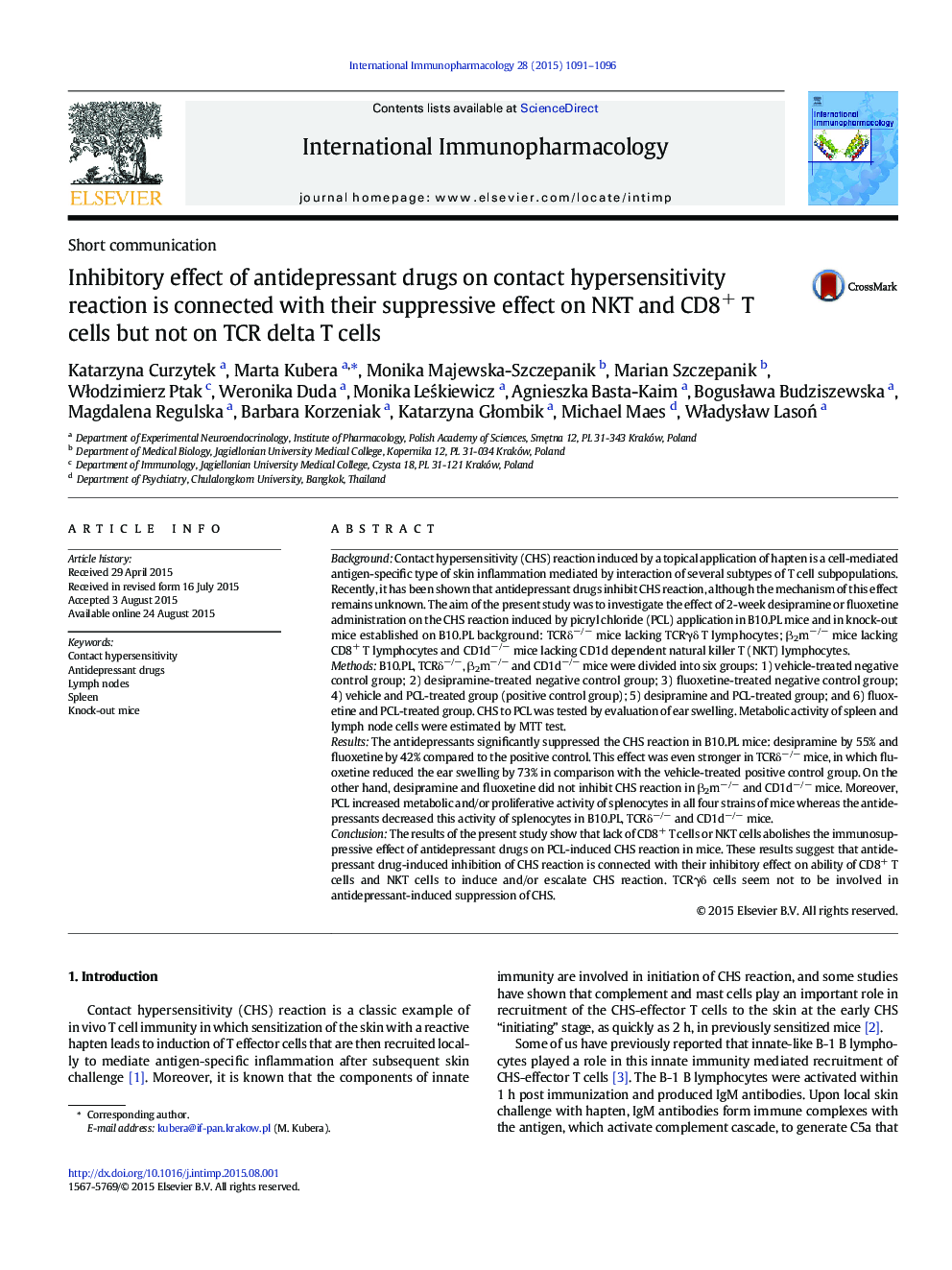| کد مقاله | کد نشریه | سال انتشار | مقاله انگلیسی | نسخه تمام متن |
|---|---|---|---|---|
| 2540406 | 1122591 | 2015 | 6 صفحه PDF | دانلود رایگان |

• Desipramine and fluoxetine inhibit contact hypersensitivity reaction.
• Suppressive effect of antidepressant drugs is connected with their impact on NKT and CD8+ T cells.
• Inhibitory effect of antidepressants is not related to TCR delta T cells.
BackgroundContact hypersensitivity (CHS) reaction induced by a topical application of hapten is a cell-mediated antigen-specific type of skin inflammation mediated by interaction of several subtypes of T cell subpopulations. Recently, it has been shown that antidepressant drugs inhibit CHS reaction, although the mechanism of this effect remains unknown. The aim of the present study was to investigate the effect of 2-week desipramine or fluoxetine administration on the CHS reaction induced by picryl chloride (PCL) application in B10.PL mice and in knock-out mice established on B10.PL background: TCRδ−/− mice lacking TCRγδ T lymphocytes; β2m−/− mice lacking CD8+ T lymphocytes and CD1d−/− mice lacking CD1d dependent natural killer T (NKT) lymphocytes.MethodsB10.PL, TCRδ−/−, β2m−/− and CD1d−/− mice were divided into six groups: 1) vehicle-treated negative control group; 2) desipramine-treated negative control group; 3) fluoxetine-treated negative control group; 4) vehicle and PCL-treated group (positive control group); 5) desipramine and PCL-treated group; and 6) fluoxetine and PCL-treated group. CHS to PCL was tested by evaluation of ear swelling. Metabolic activity of spleen and lymph node cells were estimated by MTT test.ResultsThe antidepressants significantly suppressed the CHS reaction in B10.PL mice: desipramine by 55% and fluoxetine by 42% compared to the positive control. This effect was even stronger in TCRδ−/− mice, in which fluoxetine reduced the ear swelling by 73% in comparison with the vehicle-treated positive control group. On the other hand, desipramine and fluoxetine did not inhibit CHS reaction in β2m−/− and CD1d−/− mice. Moreover, PCL increased metabolic and/or proliferative activity of splenocytes in all four strains of mice whereas the antidepressants decreased this activity of splenocytes in B10.PL, TCRδ−/− and CD1d−/− mice.ConclusionThe results of the present study show that lack of CD8+ T cells or NKT cells abolishes the immunosuppressive effect of antidepressant drugs on PCL-induced CHS reaction in mice. These results suggest that antidepressant drug-induced inhibition of CHS reaction is connected with their inhibitory effect on ability of CD8+ T cells and NKT cells to induce and/or escalate CHS reaction. TCRγδ cells seem not to be involved in antidepressant-induced suppression of CHS.
Journal: International Immunopharmacology - Volume 28, Issue 2, October 2015, Pages 1091–1096